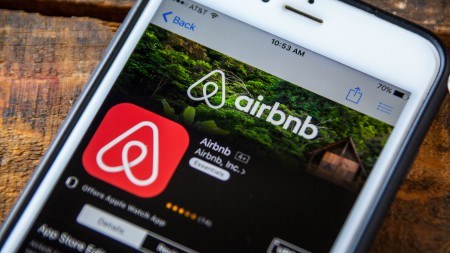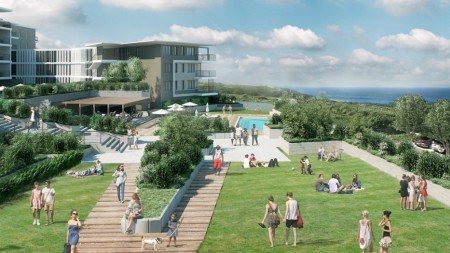As more landlords choose to go the Airbnb route, the pool of properties available for long term rentals is shrinking. This has an effect on demand and rental charges.
Airbnb fever continues unabated as more and more people take a detour from the traditional route and rent out fully furnished rooms, houses or apartments and this, it seems, is beginning to impact those looking for permanent rentals in cities such as Cape Town where the demand for temporary accommodation from both local and foreign tourists is high.
Andre de Villiers, a well known Cape Town real estate personality, says that this has had a direct effect on both rental charges and demand.
“I rent out a number of fully furnished properties in my personal capacity and although the demand has always been high, I was flabbergasted by the response I recently received when I advertised one of my properties. I wasn't actually expecting too much because I considered the amount I was charging to be fairly high. However, I quickly realised that I had underestimated the demand and eventually raised the rent to a more market related figure.”
As we've said before, Airbnb has revolutionised the hospitality industry across all levels and by doing so has allowed ordinary South Africans to make money from their homes, regardless of where they live. Capetonians, with their steady flow of foreign tourists, have possibly capitalised the most and as such have inadvertently pushed permanent rental prices up across the city.
“I don’t have any inclination to transform my properties into an Airbnb model at this stage, mainly because I wouldn't have the time to manage them,” says De Villiers. “However, although I've always thought that there wouldn't be much in the way of demand in the Southern Suburbs, many of my friends who live in these areas have switched to the model and are earning at least double the amount they would have had they chosen the long term rental route.”
It needs to be remembered that while there is a great deal of money to be made using the Airbnb formula, these guests (particularly foreign tourists) tend to be far more demanding than traditional tenants. The room or home has to kept to an exacting standard and time has to be made for cleaning and maintenance between bookings.
“At this stage it's basically a win-win for both the Airbnb model and permanent rentals because demand is always going to determine price. There is a level of desperation linked to those looking to secure permanent accommodation and as the pool of long-term rental properties shrinks, the more tenants will struggle to find a reasonably priced rental.”
The effects of Airbnb have been felt globally and while those who are profiting from the concept continue to sing its praises, there are those who have concerns about the side effects being experienced by cities.
It's been estimated that one in six homeowners in the more popular areas of Amsterdam rent out rooms and while this attracts tourists who want to take advantage of less expensive accommodation, it directly impacts on those who wish to live and work in the city. A report published in The Guardian late last year voiced the concerns of Siri Veracruz, an urban planner, who initially rented out a room in the city on Airbnb.
“At first I thought it was a great idea, but I now realise there are side-effects that we didn’t foresee. Airbnb can be a threat for cities. I think it’s obvious that Airbnb contributes to gentrification,” Veracruz says. “It drives up real estate prices that are already soaring in Amsterdam. Neighbourhood businesses which create ties between residents are being replaced by businesses which focus only on tourists. Bike rental companies replace local grocery shops, and apartments that are continuously rented out to tourists are lost to people who actually want to live here.”
He raises a number of valid points and although we may not envisage suburbs in and around Cape Town becoming tourist hubs, no one can escape the fact that Airbnb has changed the way people holiday; it has changed where they stay and there is a very good chance that given the ongoing demand, it will change our suburbs.




